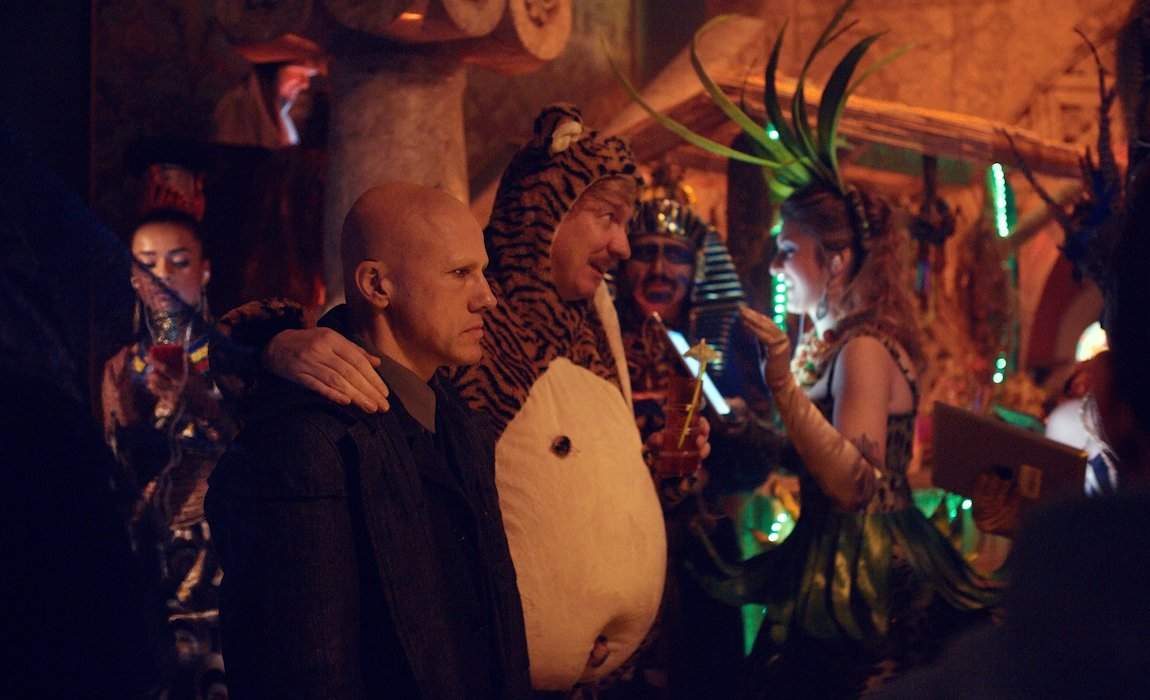The Zero Theorem
Terry Gilliam completes his Orwellian sci-fi triptych by throwing everything at the wall.
Overview
Director Terry Gilliam goes back to the future in the third and final chapter of his so-called Orwellian triptych. An existential tragedy in the guise of a sci-fi black comedy, The Zero Theorem explores many of the same dystopian concepts seen in Brazil in 1985 and 12 Monkeys a decade later.
This is unmistakably the weakest of the trio, although in fairness the other two are amongst the best science fiction films of each of their respective decades. It's a messy and sometimes frustrating film, full of big ideas that don't always get the treatment they deserve. You certainly can't fault Gilliam's ambition though, nor the quality of the pieces with which he's working.
Christoph Waltz, minus his eyebrows, plays an agoraphobic computer programmer by the name of Qohen Leth. Employed by the omnipresent ManCom Corporation, Leth's sole duty is crunching the numbers on the Zero Theorem, an intricate mathematical equation that, if solved, will prove that life in inherently meaningless. For the shut-in Leth, whose nightmares are already dominated by a terrifying black hole, the task soon transforms into an obsession.
Theorem sees Gilliam, a satirist at heart, aim his guns squarely at the commercial establishment. Bucharest masquerades as futuristic London, a city in which advertisements will literally chase you down the street. Visually, the director draws on everything from Metropolis to Lewis Carroll, not to mention, of course, a healthy dose of Nineteen Eight-Four. The world he creates is full of absurd whimsy, yet a lingering sense of oppression always remains.
It an environment we only see in glimpses, however. The bulk of the film takes place in Leth's home, a dank, rat-infested, fire-damaged church. It's here that he toils, the Quasimodo of the future, observed via surveillance camera perched atop a headless statue of Christ. It's not what you'd call a subtle visual, but then again, no one ever accused Gilliam of being subtle.
Nor would you call him a particularly focused filmmaker. At times there's a sense he's throwing everything at wall in the hope that some of it will stick. Questions of faith, purpose and reality are interesting in their own right, but never quite coalesce into an entirely satisfying whole.
In his first true starring role, Christoph Waltz gives a fantastic performance that's quite different to what we've seen in his collaborations with Tarantino. French actress Melanie Thierry, meanwhile, seems likely to break out as Leth's potential love interest, a mysterious cyber-seductress named Bainsley. Their dynamic gives the film some much-needed emotional stakes. Yet the plot that surrounds the relationship remains oddly lacking in momentum.
The Zero Theorem is nowhere near Gilliam's best. At the same time, in a lot of ways it feels like his most definitive film, in that it represents all of his good and bad tendencies simultaneously. It's as bold and intriguing as it is cluttered and confused. In the end, it contains just enough interesting elements to justify the cost of a ticket.





